Read about past keynote speakers, view programmes, prize winners, and photos in our archive.
2023 McAuley Oration
Professor Jennifer Prah
The health capability profile
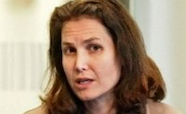 Jennifer Prah is the Amartya Sen Professor of Health Equity, Economics and Policy; the former inaugural Associate Dean for Global Studies in the School of Social Policy and Practice; Professor of Medical Ethics and Health Policy and Scholar at the Center for Global Health at the Perelman School of Medicine; Senior Fellow at the Leonard Davis Institute for Health Economics and at the Center for Public Health Initiatives; all at the University of Pennsylvania.
Jennifer Prah is the Amartya Sen Professor of Health Equity, Economics and Policy; the former inaugural Associate Dean for Global Studies in the School of Social Policy and Practice; Professor of Medical Ethics and Health Policy and Scholar at the Center for Global Health at the Perelman School of Medicine; Senior Fellow at the Leonard Davis Institute for Health Economics and at the Center for Public Health Initiatives; all at the University of Pennsylvania.
Professor Prah is the founder and director of the Health Equity and Policy Lab (HEPL) that conducts quantitative and qualitative research on the equity implications of health and social policies. Her talk explores the idea of health capability, the health capability model and the application of the health capability profile, and how we measure, analyze and develop health capability for individuals and policymakers.
2023 McAuley Oration (YouTube)
2022 McAuley Oration
Professor Chris Bullen
The global tobacco pandemic: Causes, consequences and control
Professor Chris Bullen is a public health physician and Professor of Public Health at the School of Population Health, University of Auckland, where he is Director of the National Institute for Health Innovation and Deputy Head, School of Population Health. He specialises in tobacco control and smoking cessation research, particularly on pragmatic trials of innovative approaches with the potential to scale up in low and middle-income countries. Recent research projects have trialled smoking cessation support delivered on social media platforms in China and by community health workers in rural South India and explored how to integrate smoking cessation into HIV and TB programmes in Myanmar.
2020 McKinlay Oration
Associate Professor Bob Huish
The consequences of using ancient methods for modern-day pandemics: Understanding the consequences of stigma from COVID-19
2020 McKinlay Oration (MP4)
2020 McKInlay Oration poster (PDF)
Robert Huish is Associate Professor in International Development Studies at Dalhousie University in Halifax, Nova Scotia. Dr Huish's research covers a wide range of topics such as global health, social justice, and the consequences of sanctions and embargoes. His global health work focuses on South-South Cooperation, notably between Cuba and other countries in the global South. He is the Author of Going Where No Doctor Has Gone Before: Cuba's Place in the Global Health Landscape, and numerous articles on global health, Dr Huish's research looks at how good health is often the product of social justice. Dr Huish held the Ron Lister Visiting Research Fellowship at the University of Otago in Dunedin, New Zealand in 2016, was a Visiting Fellow at McGill University's Centre for Health and Social Policy in 2017, was a Visiting Fellow at the University of Leipzig in Germany in 2018, was a visiting fellow at the University of Victoria (British Columbia in 2020) and is an Adjunct Professor at Western Sydney University.
2019 McAuley Oration
Dr Colin Tukuitonga
Responding to the dual crises threatening health in the Pacific Islands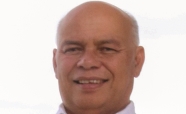
2019 McAuley Oration (MP4)
2019 McAuley Oration poster (PDF)
Dr Colin Tukuitonga has served as Pacific Community Director-General since January 2014. He is based at the organisation's headquarters in Noumea, New Caledonia.Dr Tukuitonga, from the Pacific island of Niue, was formerly the Director of SPC's Public Health Division. He was a member of an Independent External Review of SPC in 2012. His previous roles include: Chief Executive Officer of the New Zealand Government's Ministry of Pacific Island Affairs; Associate Professor of Public Health and Head of Pacific and International Health at the University of Auckland; Director of Public Health, New Zealand Ministry of Health; and Head of Surveillance and Prevention of Chronic Non-Communicable Diseases at the World Health Organization, Switzerland.Dr Tukuitonga has also served in various leadership and management roles, including at the Fiji School of Medicine, the Auckland District Health Board, Northern Regional Health Authority (Auckland), University of Auckland and the Health Research Council of New Zealand. He is a former Board member of the Pacific Cooperation Foundation.
2018 McKinlay Oration
Professor Ken Brown
Assessment and control of vitamin and mineral deficiencies globally: generating better data for more coherent public health programs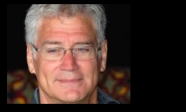
The McKinlay Oration Speaker and William Evans Visiting Fellow, Prof Ken Brown, joined us for the conference.
2017 McAuley Oration
 Professor Mark McGillivray
Professor Mark McGillivray
Converting economic growth into better health: which countries are better and why?
We were pleased to host the McAuley Oration Speaker and William Evans Visiting Fellow, Prof Mark McGillivray.
- 2017 McAuley Oration (MP4)
- 2017 McAuley Oration poster (PDF)
Prof McGillivray is a global expert on the causes of inequalities of health outcomes among developing countries. He is Research Professor in International Development at Deakin University's Alfred Deakin Institute, and former Chief Economist of the Australian Agency for International Development. His work focuses on the causes of inequalities in health outcomes amongst developing countries.
2016 McKinlay Oration
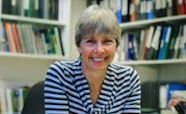 Professor Sarah Cleaveland
Professor Sarah Cleaveland
Towards the global elimination of rabies: Evidence, interventions, and impact
We were delighted that Professor Cleaveland OBE BSc BA VetMB MRCVS FRSE from the University of Glasgow could join us as the keynote speaker and presenter of the McKinlay Oration.
- 2016 McKinlay Oration (MP4)
- 2016 McKinlay Oration (MP3)
- 2016 McKinlay Oration poster (PDF)
Professor Cleaveland is a veterinary epidemiologist based at the University of Glasgow, UK. After qualifying as a veterinarian from Cambridge University in1988, she worked in mixed rural practice before embarking on a research career, gaining her PhD from the London School of Hygiene and Tropical Medicine in 1996.
Professor Cleaveland's research on the epidemiology of zoonotic and livestock diseases has a focus in East Africa. Her research aims to quantify disease burden, identify animal reservoirs of infection, understand risk factors for zoonotic diseases, and investigate infection dynamics in natural ecosystems. In addition to her work on rabies, her research interests include bacterial zoonoses such as brucellosis and leptospirosis, and transboundary livestock diseases such as foot-and-mouth disease. Professor Cleaveland is also involved in several graduate training and capacity-strengthening initiatives with African partner institutions.
Professor Cleaveland is a founding Director of the Alliance for Rabies Control, which spearheads the World Rabies Day campaigns. She is a Fellow of the Royal Society of Edinburgh, a member of the U.S. National Academy of Medicine and in 2014 was awarded an OBE for services to veterinary epidemiology.
2015 McAuley Oration
 Professor Sharon Peacock
Professor Sharon Peacock
Antibiotic resistance in the genomic era: combating a major threat to global health
The Centre for International Health was very pleased to host the McAuley Oration Speaker, and William Evans Visiting Fellow, Professor Peacock.
- 2015 McAuley Oration (MP4)
- 2015 McAuley Oration (MP3)
- 2015 McAuley Oration poster (PDF)
Professor Peacock CBE FMedSci is a global leader in infectious diseases research and Director of the Bloomsbury Research Institute and an Honorary Faculty Member at the Wellcome Trust Sanger Institute. Her research group focuses on the use of microbial whole genome sequencing in diagnostic and public health microbiology, and its application to outbreak investigation and antimicrobial prescribing. She is also undertaking a series of genomic studies to identify reservoirs of antimicrobial resistance in healthcare facilities, farms, the food chain, and the environment. Professor Peacock receives funding from the Medical Research Council through a UKCRC (UK Clinical Research Collaboration) Translational Infection Research Initiative Consortium Grant, and from the Department of Health and Wellcome Trust, through a Health Innovation Challenge Fund Award. Professor Peacock is a Fellow of the Academy of Medical Sciences, and was awarded a CBE for services to medical microbiology in 2015.
2014 McKinlay Oration
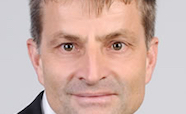 Professor Dr Jakob Zinsstag-Klopfenstein
Professor Dr Jakob Zinsstag-Klopfenstein
One Health—the added value of closer cooperation of human and veterinary medicine
The Centre for International Health was very pleased to host the McKinlay Oration Speaker Professor Dr Zinsstag-Klopfenstein.
Professor Dr Zinsstag-Klopfenstein is from the Human and Animal Health Unit, Swiss Tropical and Public Health Institute, Switzerland, and is the current President of the International Association for Ecology and Health (EcoHealth).
- 2014 McKinlay Oration (MP4)
- 2014 McKinlay Oration (MP3)
- 2014 McKinlay Oration poster (PDF)
2013 McAuley Oration
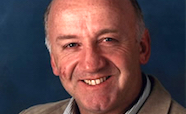 Professor Kim Mulholland
Professor Kim Mulholland
New vaccines for the developing world—who is responsible?
We were delighted to host Professor Mulholland, an Australian paediatrician with considerable experience in the developing world, to present our McAuley Oration.
- 2103 McAuley Oration (MP4)
- 2013 McAuley Oration (MP3)
- 2013 McAuley Oration poster (PDF)
- Professor Mulholland's profile (London School of Hygiene and Tropical Medicine website)
During the 1980s he managed two refugee health projects in the Sudan while undergoing paediatric and immunology training at the Royal Children's Hospital in Melbourne. His doctoral thesis was on the clinical and immunological aspects of RSV bronchiolitis in young children.
In 1989 he briefly joined the WHO Programme for Control of Acute Respiratory Infections, before joining MRC Gambia.
In Gambia, between 1989 and 1995 he established a program of research into acute respiratory infections that included clinical studies of pneumonia in malnourished children and neonatal infections, treatment trials of antibiotic therapy and oxygen therapy, pharmacokinetic studies and a program of vaccine research focused on Hib vaccine.
This program included five phase 2 trials (including one in pregnant women), and one large phase 3 efficacy trial. This trial was the first to demonstrate the efficacy of Hib vaccine against pneumonia, and in doing so it gave the first real estimate of the contribution of Hib to the burden of pneumonia in a developing country setting. This design—which incorporated elements of efficacy and effectiveness studies—became the template for future pneumococcal vaccine studies and was the first trial known as a vaccine probe study.
In 1995, Professor Mulholland joined WHO Geneva, initially responsible for research to support Integrated Management of Childhood Illness, and later responsible for research into Hib, pneumococcal, and meningococcal vaccines. In that role he established the pneumococcal trialists working group which established agreed endpoints for vaccine trials for which pneumonia is an endpoint.
All subsequent vaccine studies, including later Hib studies, employed the pneumonia definitions established by this group.
After leaving WHO in 2000, Professor Mulholland established the Centre for International Child Health at the University of Melbourne. Research undertaken by this group in Fiji has established the burden of disease due to pneumococcus, rotavirus, HPV and Group A Streptococcus, and has now lead to a decision by the Government of Fiji to introduce pneumococcal, rotavirus, and HPV vaccines.
The program of research in Fiji involved a complex phase 2 pneumococcal vaccine trial designed to evaluate alternative strategies for pneumococcal vaccine use that may be more appropriate in developing countries. It also established pneumococcal immunology and microbiology laboratories, with funded programs of research to investigate the impact of pneumococcal vaccination strategies.
Since 2005 he has been employed by London School of Hygiene an Tropical Medicine (LSHTM), where he has lead the LSHTM component of GAVI's Hib Initiative project, as well as establishing research activities in Vietnam, Ethiopia and Gambia.
In 2013 he was currently jointly employed by LSHTM, the Menzies School of Health Research in Darwin, Australia, and the Murdoch Childrens Research Institute in Melbourne—where he has established pneumococcal research laboratories. He is a member of Australia's Indigenous Immunization Reference Group. He is involved in an advisory capacity in a range of studies of Hib, pneumococcal and other vaccines. He was one of the founding organizers of the Global Action Plan for Pneumonia and with Dr Martin Weber has a book on pneumonia currently with the publishers.
2013 Special Lunch Meeting
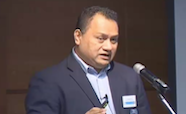 Dr Satupaitea Viali
Dr Satupaitea Viali
Rheumatic fever, rheumatic heart disease and research in Samoa and the wider Pacific
At the 2013 Conference we were fortunate to have Dr Viali from the University of Samoa present a special lunchtime public lecture.
- 2013 Special Lunchtime Meeting (MP4)
- 2013 Special Lunchtime Meeting (MP3)
- 2013 Special Lunchtime Meeting poster (PDF)
Dr Viali is a specialist physician and cardiologist working in Samoa. He had been the Professor and Dean, and Medical Educator, of the Oceania University of Medicine in Samoa from 2002–2008. He is also involved with the Fiji School of Medicine with its Master of Medicine program in Fiji.
He runs a private cardiology and general medicine clinic in Apia, Samoa; the Diabetes and Cardiac Clinic for the Diabetes Association of Samoa and Ministry of Health; and the Rheumatic Heart Disease / Echo Clinic for the National Health Services in Samoa.
Over the last 10 years, Dr Viali has been very involved in NCD research in Samoa (diabetes, STEPs, McGarvey Survey, etc), and is involved in the clinical management of RF/RHD and NCDs especially diabetes, hypertension, and IHD. His MPH was on NCDs and its risk factors prevalence in Samoa. He is currently involved in research into rheumatic heart disease and screening, diabetes and non-communicable, STEPS survey, salt reduction, and hypertension.
He is a Fellow of the Cardiac Society (FCSANZ) and the College of Physician (FRACP). He is the President of the Internal Medicine Society of the Pacific Islands (IMSOP) consisting of Internal Medicine Specialist in the Pacific. He has published in peer-reviewed journals on rheumatic fever and rheumatic heart disease, non-communicable diseases, diabetes, metabolic syndrome, and other topics.
2012 McKinlay Oration
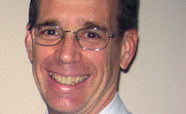 Professor Stephen Luby
Professor Stephen Luby
Global water shortages and health: Agenda for the coming decades
Professor Luby is Professor of Medicine with the Division of Infectious Diseases; Deputy Director for Research at the Center for Global Health Innovation; Senior Fellow at the Freeman Spogli Institute for International Studies; and Senior Fellow at the Woods Institute at Stanford University.
- 2012 McKinlay Oration (MP4)
- 2012 McKinlay Oration (MP3)
- 2012 McKinlay Oration poster (PDF )
Prior to his current appointment, Professor Luby served for eight years at the International Center for Diarrheal Diseases Research, Bangladesh (ICDDR,B), where he directed the Centre for Communicable Diseases. Professor Luby was seconded from the US Centers for Disease Control and Prevention (CDC) and was the Country Director for CDC in Bangladesh.
Professor Luby studied philosophy and earned a Bachelor of Arts summa cum laude from Creighton University in 1981. Prof Luby earned his medical degree from the University of Texas Southwestern Medical School at Dallas in 1986 and completed his internship and residency in internal medicine at the University of Rochester-Strong Memorial Hospital. He studied epidemiology and public health in the Epidemic Intelligence Service (EIS) and the Preventive Medicine Residency of the Centers for Disease Control and Prevention.
Professor Luby's career has included an EIS assignment to the South Carolina Department of Health and Environmental Control 1990–1991; and work with the CDC Malaria Branch in 1992. From 1993–1998, Professor Luby directed the Epidemiology Unit of the Community Health Sciences Department at the Aga Khan University in Karachi, Pakistan; and from 1998–2004, he worked as a Medical Epidemiologist in the Foodborne and Diarrheal Diseases Branch of the CDC in Atlanta causes and prevention of diarrheal disease in settings where diarrhea is a leading cause of childhood death.
Professor Luby's research focuses on public health, water, sanitation, and communicable disease. He has spent much of his career in the developing countries where these issues have the highest toll on health. He has published over 180 papers in this field. Professor Luby's work has recently been profiled by The Lancet.
Related links:
- Professor Luby's Lancet profile
- Water issues prevalent (Otago Daily Times website)
- Feature guest: Professor Stephen Luby (RNZ website)
2011 McAuley Oration
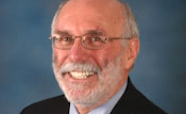 Dr Myron M Levine MD DTPH
Dr Myron M Levine MD DTPH
Vaccines, social equity and international health
The Centre for International Health was very pleased to host the University of Otago James and Jean Davis Prestige Visitor Dr Myron Levine.
- 2011 McAuley Oration (MP4)
- 2011 McAuley Oration (MP3)
- 2011 McAuley Oration poster (PDF)
Dr Levine is the Director of the Center for Vaccine Development at the University of Maryland School of Medicine. He gave the McAuley Oration on 7 November, and interacted with staff and students across the University.
Dr Levine's clinical research has involved studies of pathogenesis and the assessment of a variety of vaccines in adults and children in Maryland, as well as in many developing countries. He designed, arranged, and supervised the performance of several large-scale randomised controlled field trials investigating the efficacy of live oral typhoid vaccines (which led to licensure of Ty21a by the FDA) and a vaccine to prevent invasive disease caused by Haemophilus influenzae type b. He is the recipient of the Albert B. Sabin Gold Medal Award for lifetime achievement in the area of vaccine development and implementation.
Related link:
- Vaccination: cost effective intervention (Otago Daily Times website)
2010 McAuley Oration
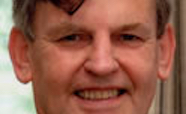 Professor Brian Greenwood
Professor Brian Greenwood
Epidemic meningitis in Africa. Is the end in sight?
Professor Greenwood CBE FRCP FRS is a British physician, biomedical research scientist, academic, and recipient of the first Hideyo Noguchi Africa Prize. Professor Greenwood is the Manson Professor of Clinical Tropical Medicine, London School of Hygiene and Tropical Medicine.
Professor Greenwood's career has focused on mitigating the effects of malaria and research. In his 10 years' experience working in Nigeria, and his 15 years as the head of the Medical Research Council Laboratories in the Gambia, his main research interests were malaria and infections caused by capsulated bacteria such as the meningococcus (Neissera meningitidis).
Malaria's stubborn resistance to control and treatment has been demonstrated in his West African clinical experience. Setbacks in a series of promising drug treatments have proven frustrating.
Although successes in research for a reliable vaccine have continued to prove elusive, Professor Greenwood has also persisted in promoting a simpler preventive approach. He has been in the forefront of those who are encouraging the use of chemically treated mosquito nets to shield sleeping villagers from attack by the malaria-infected insects.
2009 McAuley Oration
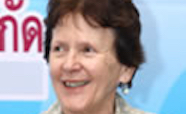 Professor Rosalind Gibson
Professor Rosalind Gibson
Zinc deficiency: etiology, health consequences, and future solutions
Professor Gibson's is one of the leaders in her field of research. Her research involves studies on the aetiology and functional health consequences of mild iron and zinc deficiency in high-risk population groups (including pregnant women, menstruating women, infants, pre-school children, and vegetarians).
A second research focus is the development of food-based strategies to enhance the content and bioavailability of micronutrients in predominantly plant-based diets consumed in developing countries, and the impact of these dietary interventions on subsequent growth, health, and cognitive development.
2008 McAuley Oration
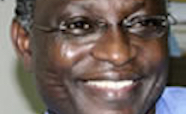 Professor Richard Adegbola
Professor Richard Adegbola
The evaluation of life saving bacterial vaccines in West Africa—the H. infuenzae and S. pneumoniae story
Professor Adegbola is from Nigeria and trained in microbiology with doctoral and post doctoral work in the UK and Sweden before returning to Africa. He has been based at the MRC laboratories in The Gambia for 18 years, and now heads the world renowned Bacterial Diseases Programme there.
Professor Adegbola is one of the world's leaders in research aimed at addressing the major infectious diseases that kill humans across the planet and has been the central part of some of the landmark vaccine intervention trials against these diseases.
He is a Fellow of the Royal College of Pathologists, has the rare honour of being a non-medical Fellow of the Royal College of Physicians and has numerous publications on bacterial infections in the tropics. He sits on decision making bodies of the WHO, the European Commission, and the Bill & Melinda Gates Foundation.
Best Student Presentation prize winners
Our Annual Conference also has a Best Student Presentation prize. Student presentations play an important role in developing our future global health researchers. Read about previous winners and their topics:
Best Student Presentation winners
Conference photos
Revisit some of the key images from our conferences, including the artists and artworks from Macandrew Bay School.
Conference photos
Conference programmes and abstracts
Download our past conference programmes and research abstracts where available:
- 2020 conference programme (PDF)
- 2020 conference abstract booklet (PDF)
- 2019 conference programme (PDF)
- 2018 conference programme (PDF)
- 2017 conference programme (PDF)
- 2017 conference programme with abstracts (PDF)
- 2016 conference programme (PDF)
- 2016 conference programme with abstracts (PDF)
- 2015 conference programme (PDF)
- 2015 conference abstracts (PDF)
- 2014 conference programme (PDF)
- 2013 conference programme with abstracts (PDF)
- 2012 conference programme with abstracts (PDF)
- 2011 conference programme (PDF)
- 2010 conference programme with abstracts (PDF)
- 2009 conference programme with abstracts (PDF)
- 2008 conference programme with abstracts (PDF)
Conference posters can be found with the relevant keynote speaker, in the section above.
